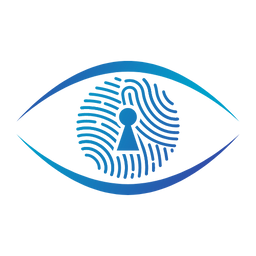The 21st Century Cures Act: Revolutionizing Healthcare in the Digital Age

The 21st Century Cures Act, signed into law in December 2016, represents a landmark piece of legislation aimed at accelerating medical product development and bringing innovations and advances to patients who need them faster and more efficiently. This comprehensive law has far-reaching implications for healthcare delivery, medical research, and health information technology.

Background and Purpose
The Act was born out of a bipartisan effort to address critical challenges in the U.S. healthcare system. Its primary goals include:
- Accelerating the discovery, development, and delivery of new cures and treatments
- Improving the exchange of health information
- Promoting patient-centered care and shared decision-making
- Addressing the opioid crisis
- Enhancing mental health services

Key Provisions
1. Advancing Medical Research
- NIH Funding: The Act authorized $4.8 billion in funding for the National Institutes of Health (NIH) over 10 years, supporting initiatives like the Cancer Moonshot and the BRAIN Initiative.
- FDA Modernization: It streamlined the FDA approval process for drugs and medical devices, including provisions for expedited review of breakthrough technologies.
2. Interoperability and Information Blocking
One of the most impactful aspects of the Act is its focus on improving the interoperability of health information technology:
- Information Blocking: The Act prohibits information blocking, defined as practices likely to interfere with, prevent, or materially discourage access, exchange, or use of electronic health information.
- API Requirements: It mandates that certified health IT developers publish APIs that allow health information to be accessed, exchanged, and used without special effort.
3. Patient Access to Health Information
- The Act emphasizes patients' right to access their electronic health information at no cost.
- It promotes the use of smartphone apps and other technologies to give patients easier access to their health data.
4. Precision Medicine Initiative
- The Act supports the development of a voluntary national research cohort to advance precision medicine.
- It aims to gather genetic, biological, environmental, health, and lifestyle data from one million or more volunteers.
5. Mental Health and Substance Use Disorders
- The Act includes provisions to strengthen mental health parity laws.
- It authorizes grants to increase access to mental health care and combat the opioid crisis.
Impact on Healthcare Stakeholders
For Healthcare Providers
- Enhanced Data Sharing: Providers must comply with information blocking rules and support patient access to health information.
- Interoperability Challenges: Healthcare organizations need to ensure their systems can seamlessly exchange data with other providers and patients.
For Health IT Developers
- API Development: EHR vendors and other health IT companies must develop standardized APIs to support data exchange.
- Certification Requirements: Health IT products must meet new certification criteria to ensure compliance with interoperability standards.
For Patients
- Improved Access: Patients gain greater access to their health information and the ability to share it with providers of their choice.
- Empowerment: Enhanced access to health data supports patient engagement and shared decision-making.
For Researchers
- Accelerated Studies: Streamlined FDA processes and increased funding support faster research and development cycles.
- Data Availability: Improved data sharing can enhance the availability of real-world data for research purposes.
Challenges and Controversies
While the 21st Century Cures Act has been widely praised, it's not without its critics:
- Some argue that the streamlined FDA approval process could potentially compromise patient safety.
- The implementation of interoperability and information blocking rules has been complex, with some stakeholders struggling to comply.
- Privacy concerns have been raised regarding the increased sharing of health information.
Implementation Timeline
The Act's provisions have been implemented in phases:
- 2017-2019: Initial funding allocations and FDA policy changes
- April 2021: Information blocking rules and certain interoperability requirements took effect
- 2022-2023: Continued rollout of interoperability requirements and API functionality
Future Outlook
As the healthcare industry continues to adapt to the requirements of the 21st Century Cures Act, we can expect to see:
- Increased innovation in health IT, particularly in areas of data exchange and patient-facing applications.
- More rapid development and approval of new drugs and medical devices.
- Growth in precision medicine and personalized healthcare approaches.
- Continued evolution of regulations and best practices around data sharing and privacy protection.
The 21st Century Cures Act represents a significant step toward a more connected, patient-centered healthcare system. While challenges remain in its implementation, the Act's focus on innovation, interoperability, and patient empowerment is set to shape the future of healthcare in the United States for years to come.






